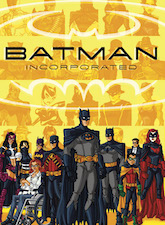Bob Ingersoll: The Law Is A Ass #363: SPIDER-MAN WATCHES A JUDGE GO FOURTH AND STULTIFY
 Well, at least this time the judge had a reason for getting the law completely wrong.
Well, at least this time the judge had a reason for getting the law completely wrong.
We’re talking The Amazing Spider-Man #16.1 (16.1? Seriously? What’s with the odd-ball numbering in comics nowadays? We’ve had zero issues. Millionth issues. Fractional issues. Now decimal point issues? I should adapt Life of Pi to a comic book mini-series and number the issues 3.1, 3.14, 3.141, 3.1415, and so on.)
In the aforementioned and strangely numbered Spider-Man comic, Detective Teddy Rangel obtained a search warrant for a building based on a tip he received that it was a hideout of wanted crime boss Lonnie Thompson Lincoln, a.k.a. Tombstone. The New York Police Department, with the help of Spider-Man – because, after all, it was his comic – executed said warrant and arrested Tombstone and his men. Had this been Hawaii Five-O, the story would have ended when Danno booked em. It wasn’t Hawaii Five-O. It wasn’t even the revival. So the story didn’t end there.
Eight days later, Judge Anson Howell– who was to judges what Thurston was to millionaires– granted Tombstone’s motion to suppress the evidence. He ruled the search warrant was defective so the search was invalid and all the evidence obtained during said search was inadmissible.
As decisions go, that one was more questionable than “Put Your Daughters to Work Day,” which never really caught on the way that other day did. It’s true that ever since 1961 and Mapp v. Ohio, the states have lived under the exclusionary rule; a rule created by the Supreme Court that says when police obtain evidence in violation of the Fourth Amendment, that illegally seized evidence must be excluded from trial. One would think that evidence seized under a defective search warrant would be suppressed. And one would be right, if the world had stopped in 1961. It didn’t. I know because I’m waaay older than nine.
Since it’s inception, the exclusionary rule has been less popular than Justice Scalia at a gay pride parade. Over the years, the Supreme Court chipped away at the exclusionary rule by creating exceptions to it. Lots of exceptions. Ever since 1984, the year not the novel, when the Supreme Court decided United States v Leon, the country has had a “good faith” exception to the exclusionary rule.
The good faith exception says that if the police execute a search warrant in good faith and later it turns out that the search warrant was defective, then the evidence obtained during the search should not be excluded from trial. The Leon court reasoned that the exclusionary rule exists to prevent the police from violating the Fourth Amendment, because they know evidence won’t be admissible, if they do violate it. However, if the police believe in good faith that they obtained a valid warrant, then they didn’t violate the Fourth Amendment. It wasn’t their fault that a neutral and detached magistrate issued the warrant in error. So suppressing the evidence would not further the the exclusionary rule’s purpose of preventing police misconduct, because there was no police misconduct. For that reason, evidence obtained by good faith reliance on a search warrant that turned out to be defective should not be suppressed.
In the case of The People v Tombstone – yes, I know it’s actually The People of New York v. Lonnie Thompson Lincoln, but who wants to keep typing The People of New York v. Lonnie Thompson Lincoln? – Judge Howell should not have suppressed the evidence seized from Tombstone’s hideout. Even though the search warrant to have been defective, the police executed it in good faith and the good faith exception required that the evidence be admissible.
There are some exceptions to the good faith exception. One is if the police lie in their application for a search warrant and mislead the magistrate who issued it, then they know that warrant was defective They knowingly got the warrant in bad faith so can’t rely on its validity in good faith
So, did Detective Rangel obtain the warrant in bad faith by lying to the magistrate? Possibly. In fact, I’ll say probably. Detective Rangel’s source was the super villain crime boss Mr. Negative. It’s not likely that either the law or the order part of the criminal justice system would put much stock in what Mr. Negative said, as it would rather put Mr. Negative in the stocks. So it is likely that Detective Rangel claimed his source was an anonymous informant who had supplied him with reliable information in the past rather than admitting it was Mr. Negative. Judges routinely issue search warrants based on similar reliable anonymous informant representations.
If the basis of Tombstone’s motion to suppress the evidence was that the source who tipped Detective Rangel wasn’t reliable, Rangel would have had to testify at the hearing to vouch for the reliability of his source. I suspect that was the basis of the motion, as Judge Howell based his ruling on the fact that Rangel – who had been shot in the line of duty, was in a coma, and ultimately died – couldn’t testify and verify his source’s reliability.
If Rangel did lie about his source and misled the judge who issued the search warrant then he acted in bad faith. That bad faith would be imputed to the rest of the police department. So, if Judge Howell ruled that the good faith exception didn’t apply, he would have been correct.
But Judge Howell was still incorrect in suppressing the evidence.
Remember how I said that Detective Rangel was shot in the line of duty? Well, like Rangel himself, I was guilty of leaving out an important detail or two. What I didn’t tell you was that Rangel was shot by one of Tombstone’s men, when Tombstone and his men opened fire on the police officers who were executing the warrant. (Important safety tip, when the police are executing a search warrant, you don’t get to execute the police.) As soon as Tombstone and his men started shooting police officers, they broke several New York state laws. Not the least of which was NY Penal L § 120.11, aggravated assault upon a police officer.
The police had probable cause to arrest Tombstone and his men for their crimes. The police didn’t need an arrest warrant because they saw the offenders committing the crimes. When the police see people committing crimes, they have probable cause to arrest the offenders immediately and don’t need to obtain an arrest warrant first.
The police had the right to arrest Tombstone and his men for shooting the police. Tombstone and his men were in their hideout when they were arrested. That means the police were entitled to search the hideout as part of a search incident to arrest.
Search incident to an arrest, that’s another one of those numerous exceptions to the exclusionary rule I talked about earlier. When the police make an arrest, they are allowed to search the surrounding area for their own protection. So when the police arrested Tombstone, they were allowed to search the hideout incident to that arrest to make sure that there were neither more people nor more weapons in it. Judge Howell erred when he granted Tombstone’s motion to suppress. It didn’t matter that the search warrant was defective, the search didn’t violate the Fourth Amendment because it was as a lawful search incident to arrest.
So why did I say that the judge had a reason for getting the law completely wrong, if he suppressed evidence that should never have been suppressed? Because Judge Howell was corrupt. Tombstone was bribing him. And that was his reason for getting the law completely wrong.
Hey, I never said the judge had a good reason.


































